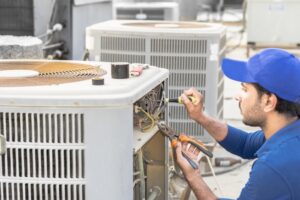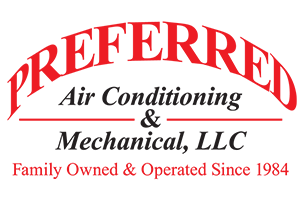With an Air Purification System, You’ll Improve Your Indoor Air Quality
With most homes sealed tight and modern cultures spending much more time indoors, the quality of the air in your home can contribute greatly to your overall health. Discover what an air purification system can do for you.
Indoor Air Contaminants
Before you can understand what an air purifier does, you first need to know what’s circulating through the air you breathe. Below are some of the most common indoor irritants:
- Dust Mites – Microscopic creatures, these small bugs cause much of the suffering of those with asthma. Dust mites thrive mostly in bedrooms and kitchens.
- Mold – Mold is a fungus that grows on wet surfaces. Some strains are lethal when inhaled too frequently.
- Pet and Rodent Dander – Pet dander travels and clings to clothes. Many times, children bring it home from school. Parents transmit it at work. The dead skin cells and hair become airborne quite easily.
- Chemicals – Modern homes contain chemicals from wallpaper, paint, cleaning solutions and more. Without proper air ventilation, chemical contaminants build up in the air.
Air Purifiers Kill Germs and Odors
Many people mistakenly believe a simple UV light will kill germs as they pass through the air. Unfortunately, UV will only kill germs when exposed for a lengthy period of time. Most heating and cooling systems move air too quickly to kill living contaminants like bacteria and viruses. However, high-quality air purifiers offer the ability to trap and kill them as they pass through.
MERV Ratings
MERV ratings compare the quality of filters inside air purifiers. Since 1987, ASHRAE (The American Society of Heating, Refrigerating and Air-Conditioning Engineers) have used a standard system for comparing air filters. The classifications are given a minimum efficiency reporting value, or MERV for short. Using a scale from 1 to 20, all air filtration systems can be compared to another. Systems using filters in the range of 17 to 20 are typically only used in hospitals and electronics manufacturing. For most residential homes, purification systems use the range of 4 to 16. Therefore, when you see purifiers rated at 15 or 16, then you know you’re using a system at the highest end of the scale.
HVAC Air Purifiers vs. HEPA Filters
HEPA filters have been widely publicized due to claims of removing 99.97 percent of irritants in the air. It’s true that HEPA filters capture more particles. However, they suffer from a slow airflow. Therefore, purifiers including HEPA filters are only ideal for small rooms. On the other hand, a purifier that integrates with your HVAC system can clean a much greater amount of air in a shorter period of time. It’s ideal for maintaining the overall level of air quality for the entire house. Purifiers that work with your heating and air conditioning system should have at least a MERV 14 rating to capture 75 percent of irritants or more.
Preferred Air Conditioning & Mechanical, LLC
For more than 20 years, Preferred Air Conditioning & Mechanical, LLC has been providing the highest quality HVAC (Heating, Ventilation and Air Conditioning) services to Palm Beach FL and surrounding communities. To learn more about our Indoor Air Quality (IAQ) services and air purifiers, call us today.
You May Also Like

Boost Your Boca Raton, FL, Business With Commercial AC Repair
Florida’s subtropical climate doesn’t take a February vacation. While temperatures hover in the comfortable mid-70s, your commercial AC system works overtime maintaining… Continue Reading Boost Your Boca Raton, FL, Business With Commercial AC Repair…

Beat the Chill With a Lower Heating Bill in Vero Beach, FL
While our Florida chill might not compare to northern freezes, the recent cold fronts have homeowners reaching for their thermostats with increasing… Continue Reading Beat the Chill With a Lower Heating Bill in Vero Beach, FL…

Yes, You Must Schedule Heating Maintenance in Fort Pierce, FL
The salty ocean breeze that makes Fort Pierce, FL, living so appealing carries an invisible threat to your heating system. December’s mild… Continue Reading Yes, You Must Schedule Heating Maintenance in Fort Pierce, FL…
